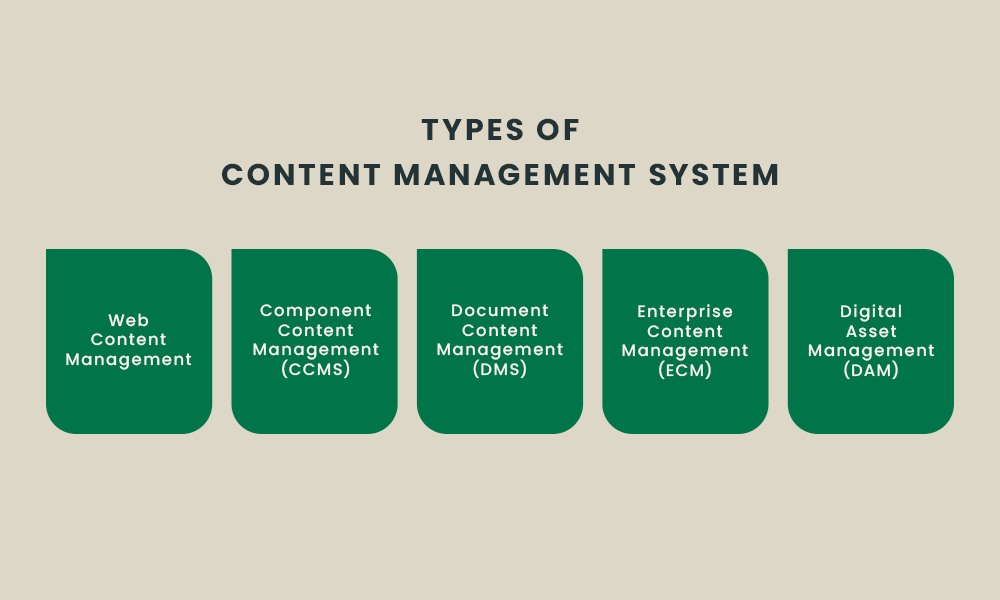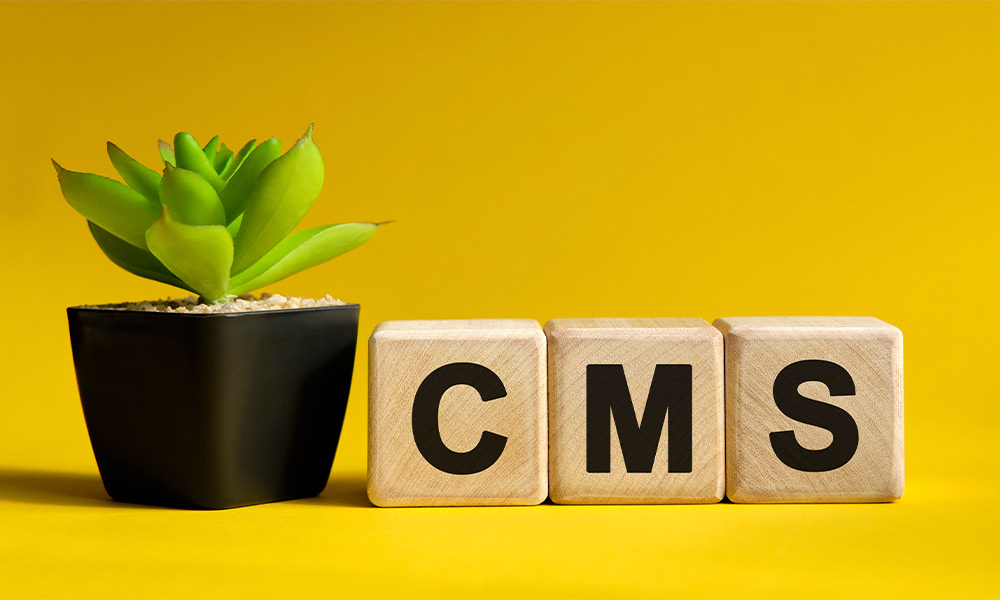Content Management Systems: What Are They? Why Should You Use Them? Why Do You Need Them TODAY?

Every marketer understands how much work goes into content creation, from research, design, and editing to organising, indexing, and posting. Fortunately, a content management system, or CMS, is a handy technology that marketers can utilise to assist in managing all of this.
It's no secret that customers prefer digital interactions with their favourite businesses and goods. Consumers expect these experiences to be highly personalised, speaking directly to their wants and requirements. From a commercial standpoint, this necessitates allocating additional resources to offering customisable information and making updates across websites, apps, social, IoT, and upcoming media.
However, inefficient content workflows, a lack of user-friendly content creation and publishing technologies, and long, expensive development cycles have left marketing, and IT teams with insufficient resources to swiftly create excellent content at scale.
What is the solution? A cloud-based solution that allows marketing and IT teams to connect and collaborate. The correct e-commerce content management system (or e-commerce CMS) can assist you in creating, managing, and delivering the digital experiences that are important to your audience across all channels, devices, and apps.
Teams can quickly publish personalised, memorable content by combining marketing-friendly templates with developer-facing capabilities in the same platform. You'll always take advantage of an opportunity to interact with your consumers if you have the correct tools.
In this article, you'll discover how a content management system (CMS) may help marketers quickly produce, distribute, and manage content that offers personalised experiences to consumers at scale, among other things.

What Is A Content Management System (CMS)?
A CMS is a single content centre that allows users (multiple or single) to create, edit, organise, publish, and update digital information without having to code. CMS software facilitates content management by providing visual content editors, drag-and-drop layout tools, and simple revision tracking and publishing workflows.
Many CMS platforms include more advanced features that support indexing, search engine optimisation, landing pages and microsite templates, demand-generating strategies, digital experience development, and regular content management capabilities.
According to Salesforce's 7th State of Marketing study, 71% of marketing businesses employ content management platforms. Marketers can use a CMS to create various digital experiences for their audiences, such as entire websites, landing pages, and promotional microsites.
Using a robust CMS, marketers can produce content in one location and simply share it across numerous channels, such as mobile devices, branded apps, or third-party platforms. Furthermore, material modifications can be broadcast across all channels, reducing the need for duplicate revisions.
The ability for editors to make changes to digital content in real-time while viewing the experience in the format it will be published in is a vital component of any content management system. This enables producers to preview websites and apps while they work on them efficiently. A CMS should also interface directly with a company's digital asset repository to centralise resources and streamline procedures.

Understanding the Various CMS Types
CMS stands for a content management system, as previously stated. However, you should be aware of a few additional CMS abbreviations.
Material management systems concentrate on various characteristics and types of content. This can range from complete papers to discrete content components like words or paragraphs.
We'll begin by defining a Web Content Management System (WCMS), as the CMS platforms we'll discuss later fall into this category.
• Web Content Management System
Web content management systems, as the name implies, assist users in creating and managing web content. They don't need to know programming or markup languages to do this, which is a significant benefit for people with limited technical understanding. Collaboration, administration, and authoring tools are some of the most common Web CMS solutions.
So, what distinguishes a WCMS from a CMS? While the two have many similarities, the fundamental difference between a WCMS and a CMS is that a WCMS only helps manage website content. In contrast, a typical CMS allows users to manage web and print content.

• Component Content Management System (CCMS)
A component content management system is another sort of CMS which enables users to manage their content at the most granular level. It tracks a single component—paragraph, image, or even a single word—rather than an entire page or document.
• Document Management System (DMS)
Many parallels exist between a Document Management System (DMS) and a conventional content management system. Both types of CMS assist users in document management.
A DMS, on the other hand, focuses on Word, Excel, PowerPoint, and so on. On the other hand, a typical CMS assists in managing web-based documents such as PDF or XML. It can also handle unstructured data, such as photos and videos.
• Enterprise Content Management (ECM)
Many sources use CMS and ECM interchangeably when addressing the question "what is a CMS?" even though these concepts are not synonymous.
Large corporations frequently employ ECMs, whilst small businesses typically use CMS platforms. ECM systems collect, organise, and disseminate any content that is important to the company's members. This data is automatically processed and saved in a centralised location. ECM platforms are designed to boost employee productivity by enabling them to access any file type anywhere.
Because an ECM is a collection of multiple types of CMS systems, it can be indistinguishable from a CMS.
• Digital Asset Management (DAM)
As enterprise systems, digital asset management platforms are a sort of ECM. DAMs are concerned with digital assets like photographs, videos, presentations, and audio files, but not with text.
CMS Fundamentals
A CMS content management system is made up of two primary parts: a content management application (CMA) and a content distribution application (CDA) (CDA).
The CMA and CDA
To understand how a content management system works, its two main components—the CMA and CDA—must be defined. The two components collaborate, with the CMA as the front-end component of a website and the CDA handling the back end.
Let's make things simpler. The entire process of creating, updating, and sending content takes place on the front-end interface. Users cannot access these procedures in the backend of a website. They work in the background to ensure that content is adequately preserved and displayed to site visitors.

Why Should You Use A CMS?
A CMS can provide numerous benefits to a company or e-commerce business. From increased marketer productivity to brand consistency and speedier launch times for new content and sites.
Most CMS platforms include a selection of pre-designed templates for every type of digital campaign imaginable, and it's simple to add more templates to expand content even further. A CMS, with its straightforward drag-and-drop feature, makes it simple to create web ads, emails, social postings, and websites — as well as enhance workflows and increase productivity.
A CMS efficiently eliminates the need for marketers to be skilled in complicated coding. This means that instead of wasting time double-checking lines of code, marketers can go immediately into a CMS interface and begin putting their marketing ideas into action.
Marketers may guarantee that they are creating relevant content based on customer data and that their brand messaging is consistent across all channels by linking their CMS with other marketing technologies.
How Does A CMS Work?
Web servers, which host your website, and databases are the components that make a CMS platform work.
• Web Servers
Consider a web server the home of your website on the internet. A website would only be visible to visitors if web servers were present.
Following that, every website needs a domain name. The domain name also indicates the location of your website. It serves as your website's street address. Web servers display your website to visitors that enter your site's domain name into their web browser.
The question is, where does a CMS fit into all of this? Like any other website, CMS systems require hosting and a domain name supplier. Once you have a web server and a domain name, you must integrate them with your preferred CMS platform.
So, how can web servers assist us in defining CMS, and how do these platforms function? What happens when your website is live? How do you add, edit, and delete material on your website? Databases come into play in this situation.

Pros & Cons?
Commercial CMS platforms are transparent in terms of pricing. You'll have an excellent idea of how much it will cost to install and use a commercial CMS platform. As there will be no unexpected expenditures, the pricing structure may be included as one of the benefits of CMSs with this licensing.
Second, most commercial CMS platforms provide package discounts. This means that, in addition to a CMS licence, you can acquire hosting, a domain name, and more features for free or at a reduced fee. At the very least, there is a free trial period during which you can test multiple platforms and determine the ideal CMS for the websites you intend to construct.
Furthermore, because commercial CMS platforms have fewer users than open-source CMSs, they are less vulnerable to security flaws.
If you're on a limited budget, you should know that a commercial CMS will typically be a more expensive alternative for managing your web content than an open-source CMS.
Take all of these variables into consideration, and then decide which of these two types of CMSs is better for your content management needs basing on your budget and requirements.

